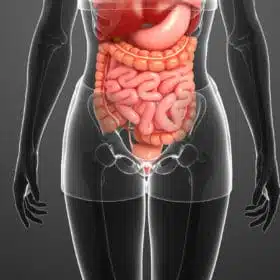If you're dieting, you're probably familiar with reaching for your belly when you wake up in the morning. If it feels flatter, chances are good that this weight loss will also show up on the scale. Because even though you can't control fat loss via training and diet to individual parts of your body (it happens relatively evenly across the whole body), for most of us, that's where the biggest reservoir of energy is. So, a flatter belly is a good sign. To help you enjoy regular progress, there are a few ways to support your body. Maybe you'll find some pointers here ...
8 tips to control your fat burning in the evening
1. a Schedule can help you. It has been found to help if you allow about 12 hours between your dinner and your morning breakfast without eating. If you eat your dinner at 7:00 p.m., you can have breakfast at 7:00 a.m. the next day and you will have had the necessary break from eating. If you want to sleep in on the weekend and your breakfast is not scheduled until 10:00 a.m., then you can eat until 10:00 p.m. on Friday night to fulfill the 12-hour break. 12 hours without eating means a fasting period for your body, during which it must contribute fat for energy, due to low blood sugar levels. Since we sleep, we don't notice hunger and bridge this time without noticeable deprivation.
To support this effect, you should avoid sugar and starch for dinner. This will extend the fasting period by a few hours. You do not provide any quickly usable carbohydrates and your organism is forced to fall back on your fat reserves. You don't have to starve yourself because of this. With low-carbohydrate vegetables and salads, cheese, meat, fish and high-quality oils, you can prepare satisfying and filling meals.
Use salt sparingly in the evening. Sodium binds fluid in your body. If you choose high-salt foods and maybe chips and salted peanuts, the weight you put on the scale in the morning will be mostly liquid. This can quickly bring your motivation down and ruin your good intentions for the day.
4. your age plays a role in how long you can eat in the evening without problems. According to a recent study, the risk of weight gain after a midnight snack is greater for people between the ages of 31 and 61 than for anyone else.
Drink, drink, drink. Drinking enough fluids keeps your metabolism high, flushes toxins out of your body through your kidneys, and also dissolves the salt from salty meals. If you don't drink enough water, your body will try to replace it through your food intake and may send you false hunger signals. But don't drink anything a few hours before bedtime - your bladder will wake you up at night and keep you on your toes.
6. don't skip meals and eat your fill at lunchtime. If you've had enough energy during the day and balanced your vitamin and mineral intake, you're less likely to binge in the evening. A small dinner is usually enough.
7. keep your bedroom cool. People who sleep in cooler bedrooms have been found to burn more calories during sleep. Also, don't forget to keep your bedroom well ventilated or, at reasonable temperatures, sleep with the window open. Taking in enough oxygen will further support your fat burning.
8. regularly incorporate a short evening walk. You'll probably only burn a few calories, but you'll have the opportunity to psych your body up for bedtime. Fresh air and the relaxing wind down will bring calm to your routine and let you sleep well. Another benefit is that you'll be out of reach of snacking and temptation.
Even if they are only small changes in your habits, you can make great progress in the long run. Small fat burning tips for the evening can make you wake up in the morning with new energy and motivation.








